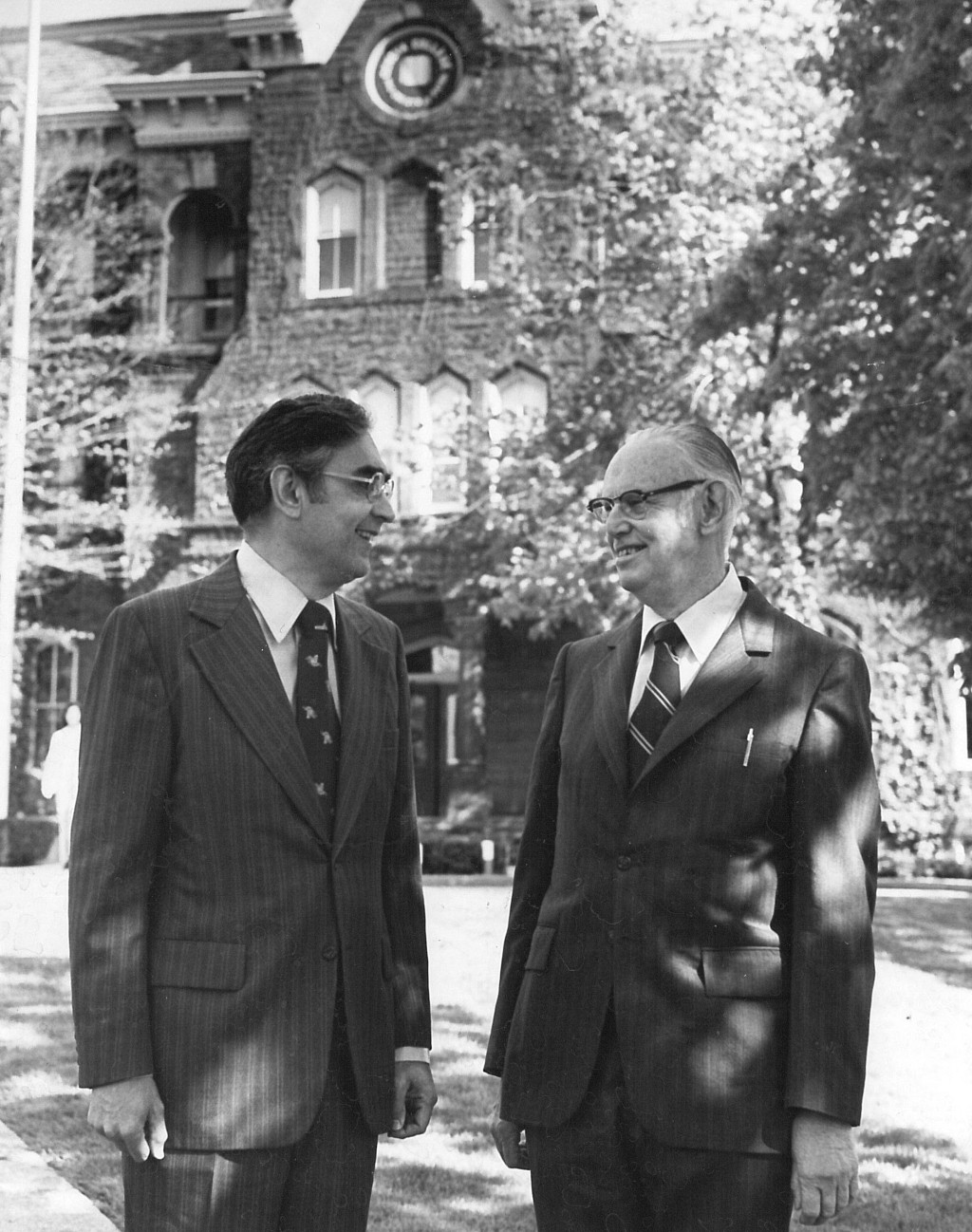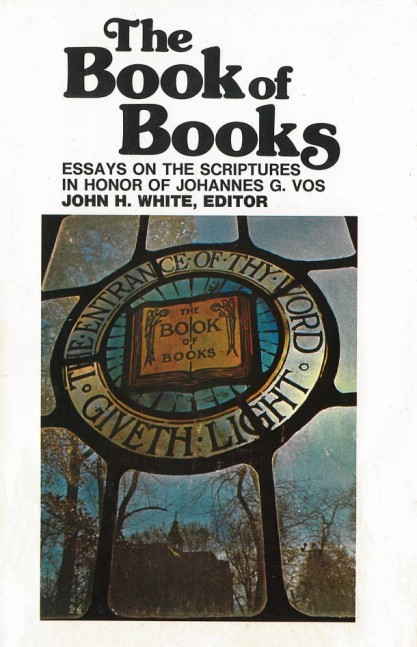You have free articles remaining this month.
Subscribe to the RP Witness for full access to new articles and the complete archives.
Reformed Presbyterians often think of their denomination as small and unnoticed—a remnant—but committed to the truth. Some may think of psalm singing as our gift to the church worldwide, but we are not the only psalm-singing denomination. There have been, and are, other psalm-singing churches in various cultures throughout the centuries.
Others might say, What about the mediatorial kingship of Christ? But this doctrine is a central, confessional part of all Reformed creeds. Though the RPCNA may have articulated and applied this doctrine uniquely, the doctrine is not unique to the RPCNA.
Though the RPCNA may lack size and prominence, we should not assume that God does not advance His kingdom through denominations such as this. A 1978 book in tribute to Dr. J. G. Vos, The Book of Books, is one reminder of the mighty ways God has worked through the RPCNA.
While recently reviewing The Book of Books, I came across the statement, “Dr. Vos was a missionary in Manchuria from 1930 to 1941.” I began to look into this decade of Vos’s ministry, and what I discovered was remarkable.
A Writer
J.G. Vos was the son of renowned Princeton theologian Geerhardus Vos. In 1926, J.G. Vos united with the RPCNA out of theological conviction. He often is remembered for his quarterly journal Blue Banner Faith and Life. Many would say that this journal was one of the means of the restoring and upholding of Reformed, biblical Christianity in the RPCNA. For 33 years, this journal was read and studied throughout the church.
Vos also authored the pamphlet “What Is Christian Education?” This pamphlet was the principal source for “Foundational Concepts of Christian Education” adopted at Geneva College. The document has reshaped the RPCNA’s college into a more consistent and articulate Christian institution. For 29 years, Dr. Vos was the chairman of the Biblical Studies Department at Geneva.
A Missionary
There remain those obscure years of Vos’s life in Manchuria. What has unfolded in recent times is clear evidence from external and internal sources that this RPCNA mission and ministry under the leadership of Dr. J.G. Vos was, and continues to be, a seed sower for the tremendous harvest of believers—and especially of the Reformed faith—in China today.
Think of it! One gifted man, used by God for theological renewal in the denomination and renewal at the denominational college, was, with his colleagues and through his teaching at Newchwang Bible School in Manchuria, sowing the seed for the remarkable growth of the house/underground church in China today.
A Theologian
The extent of Vos’s ministry is not confined to Geneva College or to China. Throughout much of the biblically conservative evangelical community, there is a burgeoning interest in Vosian biblical theology. It is named after J.G. Vos’s father. It is the method of interpretation used by noted theologians such as Donald Carson, Greg Beale, Darrell Bock, R.C. Sproul, and Robert Godfrey. All faculty at Westminster Theological Seminary are required to embrace and articulate Vosian biblical theology.
This interpretation, humanly speaking, would not exist without J.G. Vos. He rewrote and edited most of his father’s books, including the source of this interpretation, Biblical Theology: Old and New Testament. In the introduction, Dr. Vos’s father wrote: “the editing of this material was done by my son the Rev. J.G. Vos, who studied this work as a student at Princeton and is in hearty agreement with the theological viewpoint of this book.” In his son’s own words, the editing involved the “substantial rewriting of the entire book.”
—————————————-
Crown & Covenant Publications is publishing a revised edition of The Book of Books (projected to be released this spring). In this book, you can read further about the RPCNA’s work in the church of Christ worldwide. Also, you will be able to read tributes to J.G. Vos, as well as articles by him. This book will remind us that God can use a small, remnant church as His powerful instrument to build His kingdom.
—————————————-
In the last 40 years there has been a phenomenal growth of Christianity in China. Furthermore, such divergent publications as China Source, The Economist, and The Atlantic are writing that Reformed theology “has become more and more influential among Chinese Christians.”1 Why this phenomenal growth in general and the Reformed believers in particular? These publications mention categories such as: “it resolves cognitive problems between faith and reason”; “it offers a comprehensive worldview”; “it provides tools in responding to many schools of secular thought”; “it speaks to the relationship of church and state.”2
In more recent years this hunger for Reformed theology has resulted in a church movement, fueled by a Reformed understanding of church planting and polity. The remarkable result is churches formalizing their confessions such as the Westminster Standards and Heidelberg Catechism. This commitment is often followed by the establishment of presbyteries and classes. There is a strong emphasis on covenant theology, the founding of Christian schools, and a Reformed understanding of calling, i.e. how biblical faith relates to their professional lives. Thus this inspiration for church planting has a kingdom vision3.…
It is reported that China’s churches understand that this commitment to evangelical/Reformed theology did not happen in a vacuum. What may appear to be new arises from a rich, historical heritage of Reformed faith. Ian Johnson, a Pulitzer Prize Atlantic reporter, found as he visited the Early Rain Reformed Church in Chengdu: “They long to be part of a global movement—something orthodox, standard and authentic and not indigenous.”[^fn-4_footnote] This has been the result of the introduction and translation of classic Reformed literature.
By now you may be responding with words of praise and thanks to God, but how does this movement of the Holy Spirit relate to J.G. Vos and the Reformed Presbyterian Church? Those connections are explained in the new chapter of The Book of Books second edition entitled, “J. G. Vos: Missionary in Manchuria,” by John H. White.
Dr. John H. White | president emeritus, Geneva College

